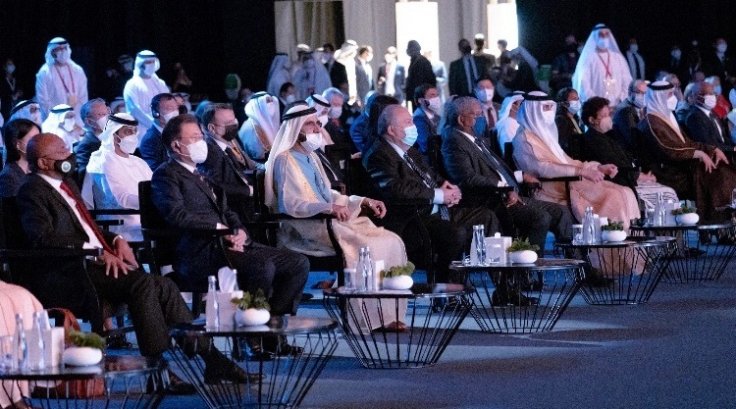
Singapore announced the Singapore Green Plan 2030. This 10-year plan lays out the country's priorities for collaboration with the international community, including to develop low-carbon solutions and pursue a low-carbon transition that does not hurt economic competitiveness and have adverse impacts on Singaporean livelihoods.
The pathway to achieve this, Singapore announced transformations in industry, economy, and society; adoption of advanced low-carbon technologies; and effective international collaboration, for example international climate action, regional power grids, market-based mechanisms as key strategies. In developing Singapore's LEDS aspiration, the country has taken a positive outlook on global advances in technology and the potential for international cooperation.
The Abu Dhabi Sustainability Week (ADSW) is the first global and large-scale sustainability event after last year's United Nations Climate Change Conference (COP26) in Scotland. UAE was prompt in announcing its commitment to reach net-zero carbon emissions by 2050, thus becoming the first country in the Middle East and North Africa region to make such a commitment. Meanwhile, Singapore aspires to halve its emissions from its peak by 2050, with a view to achieving net zero emissions as soon as viable in the second half of the century.
Singapore made a new pledge last year to reach peak greenhouse gas emissions of 65 million tons by 2030, halving that amount by 2050 and achieving net-zero emissions "as soon as viable in the second half of the century".
To help achieve those goals, new proposed legislation would give Singapore's Energy Market Authority (EMA) and Ministry of Trade more powers to ensure companies improve energy efficiency and to increase renewable energy supplies, including solar power imported from neighbouring countries.
According to sustainability and environment minister Grace Futhe; Singapore government will also support Singapore companies in the transition via stimulus funding including the Energy Efficiency
Pablo Al-Kaalik a contributor to the world of global sustainability in blockchain and his soon to launch IWIL initiative was supportive of international collaboration to reach global targets.
"The ADSW in Abu Dhabi was a success and progress from COP26 in Scotland. His Highness Sheikh Mohammed bin Rashid Al Maktoum efforts has made UAE a strong force in tackling this global crisis. With Singapore keen to collaborate with the UAE on improving their technical feasibility and the establishment of supply chains for low-carbon hydrogen is great. UAE is a perfect partner as they are already on track to achieve net-zero carbon emissions by 2050. Our research and development team at IWIL has gathered data which highlights the benefits of collective efforts with SMEs and neighbouring countries in lowering carbon" said Pablo Al-Kaalik
Singapore President, Halimah Yacob opinion was clear that Singapore will work with the UAE on solutions that reduce planet-warming carbon emissions to sustain "robust global responses to the climate crisis"









